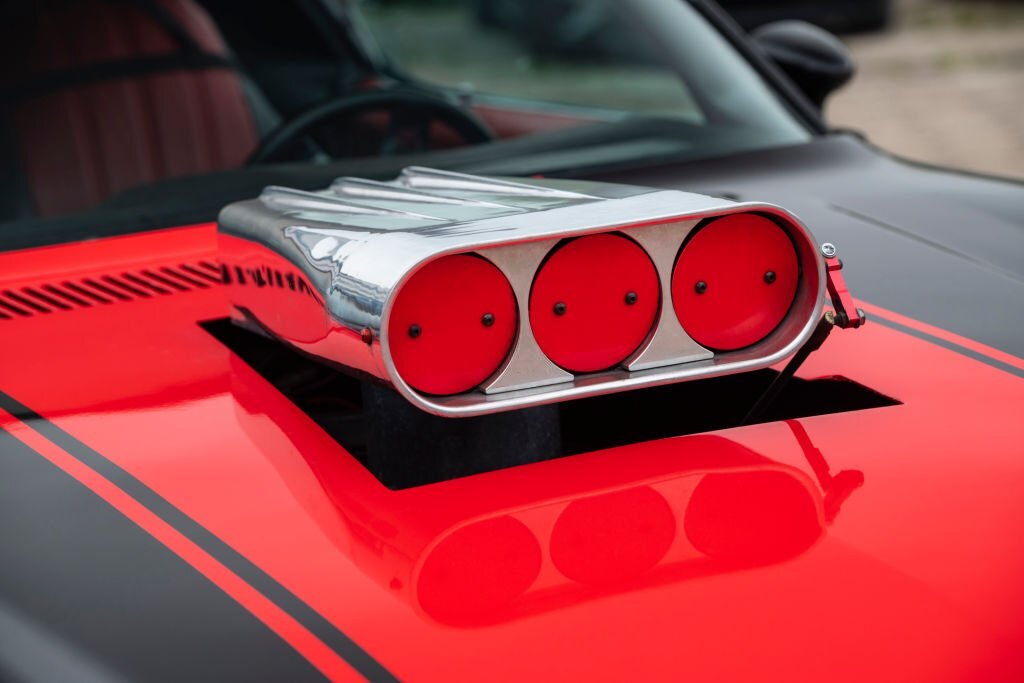Are Turbo Upgrades Worth The Investment?
As car enthusiasts, we always want to squeeze more power and performance out of our engines. One of the most popular met

As car enthusiasts, we always want to squeeze more power and performance out of our engines. One of the most popular methods to achieve this is through turbo upgrades. But are these upgrades worth the investment? This article delves into the world of turbocharging and discusses the various aspects of turbo upgrades, including their benefits, drawbacks, and costs. We aim to provide you with the information you need to make an informed decision on whether or not turbo upgrades are a worthwhile investment for you and your car.
Understanding Turbochargers
Before we dive into turbo upgrades, it's important to have a basic understanding of what a turbocharger is and how it works. A turbocharger is a forced induction device that increases an engine's power and efficiency by forcing more air into the combustion chamber. This increased air allows for more fuel to be burned, resulting in increased horsepower and torque.
A turbocharger consists of a turbine and a compressor, connected by a shaft. The turbine is driven by exhaust gases from the engine, which in turn spins the compressor, forcing more air into the engine. This process is what allows a smaller engine to produce the power of a larger, naturally aspirated engine.
Benefits of Turbo Upgrades
There are several benefits to upgrading your turbocharger, including:
- Increased power and torque: The primary benefit of a turbo upgrade is increased power and torque. With a larger turbocharger, more air can be forced into the engine, resulting in a significant increase in power output.
- Improved efficiency: Turbo upgrades can also improve engine efficiency, allowing for more power with less fuel consumption. This can translate to better fuel economy and reduced emissions, depending on the specific upgrade and application.
- Enhanced driving experience: The added power and torque provided by a turbo upgrade can dramatically improve the driving experience, especially when accelerating or overtaking other vehicles.
- Potential for further modifications: A larger turbocharger can provide a solid foundation for additional performance modifications, such as upgraded fuel injectors, exhaust systems, and engine tuning.
Types of Turbo Upgrades
There are several types of turbo upgrades available, including:
- Larger turbocharger: Replacing the stock turbocharger with a larger unit can provide a significant increase in power and torque. This is typically the most common type of turbo upgrade and is suitable for most applications.
- Twin-turbo setup: Some vehicles can benefit from the installation of a second turbocharger, working in tandem with the existing unit. This can provide even more power and torque, but may require additional modifications and tuning.
- Variable geometry turbocharger (VGT): VGTs use adjustable vanes to alter the airflow through the turbocharger, providing optimal performance across a wider range of engine speeds. This can result in improved power, torque, and efficiency compared to a traditional turbocharger.
- Ball-bearing turbocharger: Replacing the traditional journal bearing with a ball-bearing design can result in reduced friction and increased turbocharger efficiency, leading to faster turbo spool-up and improved throttle response.
Costs and Investment
The cost of a turbo upgrade can vary greatly, depending on the specific upgrade and the make and model of your vehicle. Some factors to consider when determining the cost of a turbo upgrade include:
- The cost of the turbocharger itself: This can range from a few hundred dollars for a basic, off-the-shelf unit, to several thousand dollars for a custom, high-performance turbocharger.
- Installation costs: The labor required to install a turbo upgrade can also vary, depending on the complexity of the upgrade and the specific vehicle. In general, expect to pay several hundred dollars for professional installation.
- Supporting modifications: Depending on the specific turbo upgrade and your vehicle, additional modifications may be required, such as upgraded fuel injectors, exhaust systems, or engine tuning. These costs should be factored into the overall investment.
- Potential warranty and insurance implications: Upgrading your turbocharger may void your vehicle's warranty or result in increased insurance premiums. It's important to consider these factors when determining the overall cost of a turbo upgrade.
Potential Drawbacks and Reliability Concerns
While there are many benefits to turbo upgrades, there are also some potential drawbacks and reliability concerns to consider, including:
- Increased stress on the engine: The increased power and torque provided by a turbo upgrade can place additional stress on the engine and drivetrain components, potentially leading to premature wear or failure.
- Heat management: Larger turbochargers can generate more heat, which may require additional cooling upgrades to maintain optimal performance and reliability.
- Turbo lag: Depending on the specific turbo upgrade, there may be an increase in turbo lag, resulting in a delay in power delivery when accelerating.
Making the Decision: Is It Worth It?
Ultimately, the decision to invest in a turbo upgrade will depend on your specific goals, budget, and vehicle. If you're seeking a significant increase in power and torque, and are willing to invest in the required supporting modifications and maintenance, a turbo upgrade can be a worthwhile investment. However, it's important to carefully consider the potential drawbacks and reliability concerns, as well as the overall cost of the upgrade, before making a decision.
In conclusion, turbo upgrades can provide a substantial boost in power, torque, and efficiency, making them an attractive option for many car enthusiasts. However, it's crucial to weigh the benefits against the potential drawbacks and costs to determine if a turbo upgrade is the right investment for you and your vehicle.

